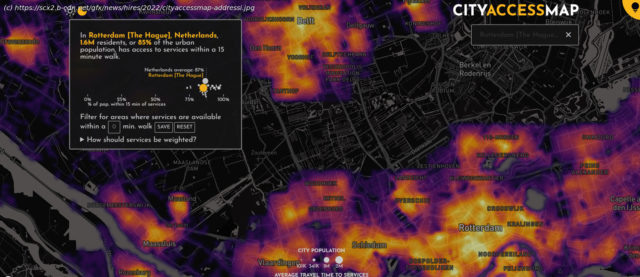People in deprived city areas tend to have less services available than inhabitants in wealthier parts. They have less access to urban infrastructure such as pharmacies, libraries, sports clubs and even public transport in their neighborhood. Reversing this tendency is a priority for today’s policy-makers. Researchers of TU Delft have created a new online tool «CityAccessMap» that can help them in doing so.
October 17, 2022
People in deprived city areas tend to have less services available than inhabitants in wealthier parts. They have less access to urban infrastructure such as pharmacies, libraries, sports clubs and even public transport in their neighborhood. Reversing this tendency is a priority for today’s policy-makers. Researchers of TU Delft have created a new online tool «CityAccessMap» that can help them in doing so.
CityAccessMap measures and visualizes the accessibility to urban infrastructure of several cities worldwide. The tool is available to anyone who would like to see how urban infrastructure is distributed, but is especially of interest to urban planners.
«With the tool we want to create awareness among policymakers and spur them to action to do something about inequalities for certain underprivileged communities,» says researcher Trivik Verma, assistant professor in urban science and policy who is involved in the development of the online tool. Together with his team, their research into accessibility and socio-economic aspects of people’s well-being shows that disadvantaged communities have lower access.






